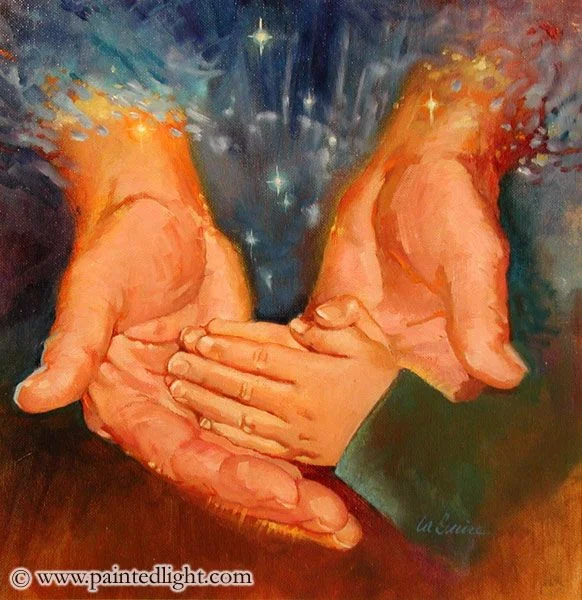“Father, into Thy hand I commend my spirit.
”
St. Matthew, St. Mark and St. Luke tell us of a cry with a loud voice, and the giving up of the ghost, between which St. Luke records the words, “Father, into Thy hands I commend my spirit.” Surely never in all books, in all the words of men, can there be so much expressed as lay unarticulated in that cry of the Son of God. Now had he made his Father Lord no longer in the might of making and loving alone, but Lord in right of devotion and deed of love. Now should inward sonship and the spirit of glad sacrifice be born in the hearts of men; for the divine obedience was perfected by suffering. He had been amongst his brethren what he would have his brethren be. He had done for them what he would have them do for God and for each other. God was henceforth inside and beneath them, as well as around and above them, suffering with them and for them, giving them all he had, his very life-being, his essence of existence, what best he loved, what best he was. He had been among them, their God-brother. And the mighty story ends with a cry.
Then the cry meant, It is finished; the cry meant, Father into thy hands I commend my spirit. Every highest human act is just a giving back to God of that which he first gave to us. Every act of worship is a holding up to God of what God hath made us. “Lord, I am thy child, and know not how to thank thee save by uplifting the offering of the overflowing of thy life, and calling aloud, ‘It is thine; it is mine. I am thine, and therefore I am mine.’”
Commentary
Jess Lederman
Although The Hands of the Father was published in 1867 as part of Volume I of Unspoken Sermons, and Justice (featured in the October 9th to November 6th entries in Consuming Fire), perhaps the greatest of his sermons, was published twenty-two years later in Volume III, their vision is the same. The opening paragraphs of The Hands of the Father provides a condensed version of MacDonald's understanding of the atonement: Christ died that men might live like Him, so that God would be "henceforth inside and beneath them."
Similarly, Christ “died that I may be like him,“ he writes in Justice, “{and} die to any ruling power in me but the will of God.” "God sacrificed his own son to us; there was no way else of getting the gift of himself into our hearts." Sixty years later, C.S. Lewis would lay out a similar theory of the atonement in Mere Christianity. For a longer excerpt from Justice, see MacDonald on the Atonement.
Sonnet XVIII from Eighteen Sonnets About Jesus
by George MacDonald
Thou art before me, and I see no more
Pilate or soldiers, but the purple flung
Around the naked form the scourge had wrung,
To naked Truth thus witnessing, before
The False and trembling True. As on the shore
Of infinite Love and Truth, I kneel among
Thy footprints on that pavement; and my tongue
Would, but for reverence, cry: "If Thou set'st store
By feeble homage, Witness to the Truth,
Thou art the King, crowned by thy witnessing!"
I die in soul, and fall down worshipping.
Art glories vanish, vapours of the morn.
Never but Thee was there a man in sooth,
Never a true crown but thy crown of thorn.

